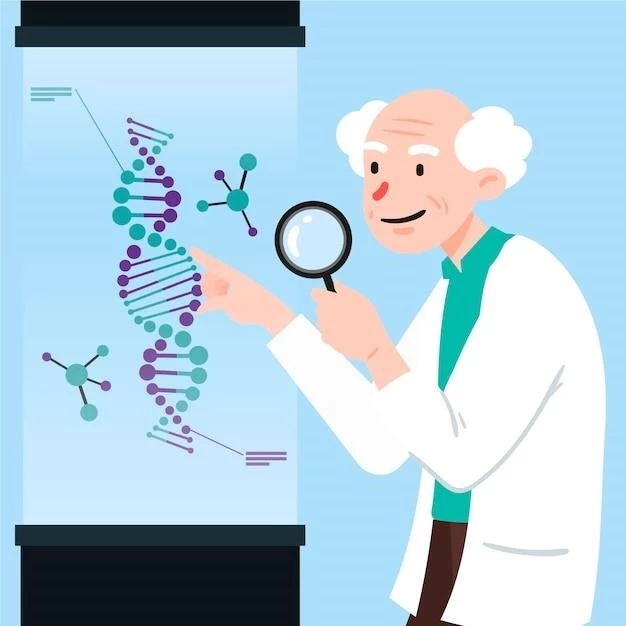Kashani–Strom–Utley Syndrome
Kashani–Strom–Utley Syndrome, a rare genetic disorder, affects neurological development․ This article provides an overview, details symptoms, genetic basis, impact, treatment, prognosis, ongoing research, and support resources․
Overview of Kashani–Strom–Utley Syndrome
Kashani–Strom–Utley Syndrome, also known as KSUS, is a rare genetic disorder characterized by a range of symptoms affecting neurological development․ It was first described in 2011 and since then, only a few cases have been reported worldwide․ Individuals with KSUS may experience developmental delays, intellectual disabilities, speech and motor impairments, seizures, and behavioral challenges․
The syndrome is named after the three physicians who initially discovered and reported it․ Due to its rarity, diagnosis can be challenging and often requires genetic testing to confirm the presence of specific mutations associated with KSUS․ Management of the condition typically involves a multidisciplinary approach to address the various symptoms and needs of those affected․
Further understanding of the genetic basis and underlying mechanisms of Kashani–Strom–Utley Syndrome is crucial for developing targeted treatments and interventions․ Ongoing research aims to unravel the complexities of this disorder and improve diagnostic methods and therapeutic options․ Despite the challenges it presents, individuals with KSUS can benefit from supportive care and resources that cater to their unique needs․
Symptoms and Diagnosis
Individuals with Kashani–Strom–Utley Syndrome may present a variety of symptoms that can impact their daily functioning and quality of life․ Common symptoms include developmental delays, intellectual disabilities, speech and motor impairments, seizures, and behavioral challenges such as hyperactivity or aggression․ These symptoms can vary in severity among affected individuals․
Diagnosing Kashani–Strom–Utley Syndrome can be complex due to its rarity and the overlap of symptoms with other developmental disorders․ A diagnosis is typically made based on a combination of clinical evaluation, detailed medical history, and genetic testing to identify specific mutations associated with the syndrome․ Genetic testing plays a crucial role in confirming the presence of KSUS and differentiating it from other conditions with similar features․
Early diagnosis is essential to ensure individuals receive timely interventions and support tailored to their needs․ Healthcare professionals, including geneticists, neurologists, and pediatric specialists, may be involved in the diagnostic process to provide comprehensive care and management strategies for individuals with Kashani–Strom–Utley Syndrome․
Genetic Basis
Kashani–Strom–Utley Syndrome is a genetic disorder caused by mutations in specific genes․ The syndrome is believed to be inherited in an autosomal recessive pattern, meaning that an individual must inherit two copies of the mutated gene ⎯ one from each parent ⏤ to develop the condition․ The specific genes associated with KSUS are still being studied, and research is ongoing to understand their role in the development of the disorder․
These genetic mutations disrupt normal neurological development and function, leading to the characteristic symptoms observed in individuals with Kashani–Strom–Utley Syndrome․ Understanding the genetic basis of the syndrome is crucial for accurate diagnosis, genetic counseling, and potential future treatment strategies․ Genetic testing is instrumental in identifying these mutations and confirming a diagnosis of KSUS in affected individuals․
Researchers continue to investigate the underlying genetic mechanisms that contribute to KSUS, aiming to elucidate how these mutations impact brain development and function․ By uncovering the genetic basis of the syndrome, scientists hope to pave the way for targeted therapies that address the root cause of the disorder, ultimately improving the quality of life for individuals affected by Kashani–Strom–Utley Syndrome․
Neurological and Developmental Impact
Kashani–Strom–Utley Syndrome exerts a significant impact on both neurological development and overall cognitive functioning․ The genetic mutations underlying the syndrome lead to disruptions in normal brain development, causing a range of neurological symptoms․ Individuals with KSUS may experience delays in reaching developmental milestones, such as sitting, walking, and talking․

The neurological impact of the syndrome can manifest as seizures, motor impairments, and speech difficulties, affecting the individual’s ability to communicate and perform everyday tasks․ Cognitive function is also affected, often resulting in intellectual disabilities that can vary in severity from mild to profound․ These challenges can influence social interactions, learning abilities, and adaptive skills․
The developmental impact of Kashani–Strom–Utley Syndrome requires comprehensive support and interventions tailored to the individual’s specific needs․ Early intervention services, educational support, speech therapy, occupational therapy, and behavioral interventions play a crucial role in addressing the neurological and developmental challenges associated with the syndrome․ Multidisciplinary care teams work together to provide holistic care and maximize the individual’s potential for growth and development․
Treatment and Prognosis
Managing Kashani–Strom–Utley Syndrome involves a multidisciplinary approach to address the diverse range of symptoms and challenges associated with the disorder․ While there is currently no specific cure for KSUS, treatments focus on alleviating symptoms, improving quality of life, and providing support for individuals and their families․
Treatment plans for those with Kashani–Strom–Utley Syndrome may include medications to manage seizures, behavioral therapies to address challenges such as hyperactivity or aggression, and speech and occupational therapy to enhance communication and motor skills․ Educational interventions and specialized support services are also essential components of management․
The prognosis for individuals with Kashani–Strom–Utley Syndrome can vary depending on the severity of symptoms, individual response to treatment, and the availability of supportive resources․ Early diagnosis and intervention play a crucial role in improving outcomes and maximizing the individual’s potential for development and well-being․
While the challenges presented by KSUS can be significant, ongoing research and advancements in treatment strategies offer hope for improved management of the disorder and better outcomes for affected individuals․ By providing comprehensive care and support, healthcare professionals can positively impact the prognosis and quality of life for those living with Kashani–Strom–Utley Syndrome․
Ongoing Research
Ongoing research into Kashani–Strom–Utley Syndrome plays a crucial role in expanding our understanding of this rare genetic disorder, its underlying mechanisms, and potential treatment avenues․ Scientists and clinicians are actively investigating the genetic basis of KSUS, aiming to identify additional genes and mutations involved in the development of the syndrome․
Research efforts also focus on unraveling the complex neurological and developmental impact of Kashani–Strom–Utley Syndrome․ By studying how genetic mutations affect brain function and cognitive development, researchers aim to discover new therapeutic targets that could lead to improved treatment strategies for individuals with KSUS․
Advancements in genetic testing technologies and bioinformatics have enhanced our ability to identify and characterize genetic mutations associated with rare disorders like KSUS․ These tools are instrumental in diagnosing the condition accurately and facilitating genetic counseling for affected individuals and their families․
Collaborative research endeavors bring together experts from various fields, including genetics, neurology, and developmental pediatrics, to advance our knowledge of Kashani–Strom–Utley Syndrome․ By sharing data, resources, and insights, researchers can accelerate the pace of discovery and translation into clinical practice, ultimately benefiting individuals affected by this rare genetic disorder․
Support and Resources
Individuals and families impacted by Kashani–Strom–Utley Syndrome can benefit from a range of support services and resources tailored to address their unique needs․ Support systems play a vital role in providing emotional, educational, and practical assistance to navigate the challenges associated with the disorder․
Support groups and online communities offer opportunities for individuals with KSUS and their families to connect with others facing similar experiences․ These platforms provide a space for sharing information, exchanging tips, and receiving emotional support from peers who understand the complexities of living with a rare genetic condition․
Educational support services can assist individuals with Kashani–Strom–Utley Syndrome in accessing specialized education plans, accommodations, and therapies to optimize their learning and development․ Working closely with schools and educational professionals can help create an inclusive and supportive environment for individuals with the syndrome․
Additionally, access to healthcare professionals with expertise in neurodevelopmental disorders is essential for proper management and care coordination for individuals with KSUS․ Genetic counselors can provide valuable information about the genetic basis of the syndrome, inheritance patterns, and available testing options․
By tapping into available support networks, resources, and expert guidance, individuals and families affected by Kashani–Strom–Utley Syndrome can enhance their quality of life, gain knowledge about the disorder, and access the necessary tools to navigate the unique challenges posed by this rare genetic condition․
